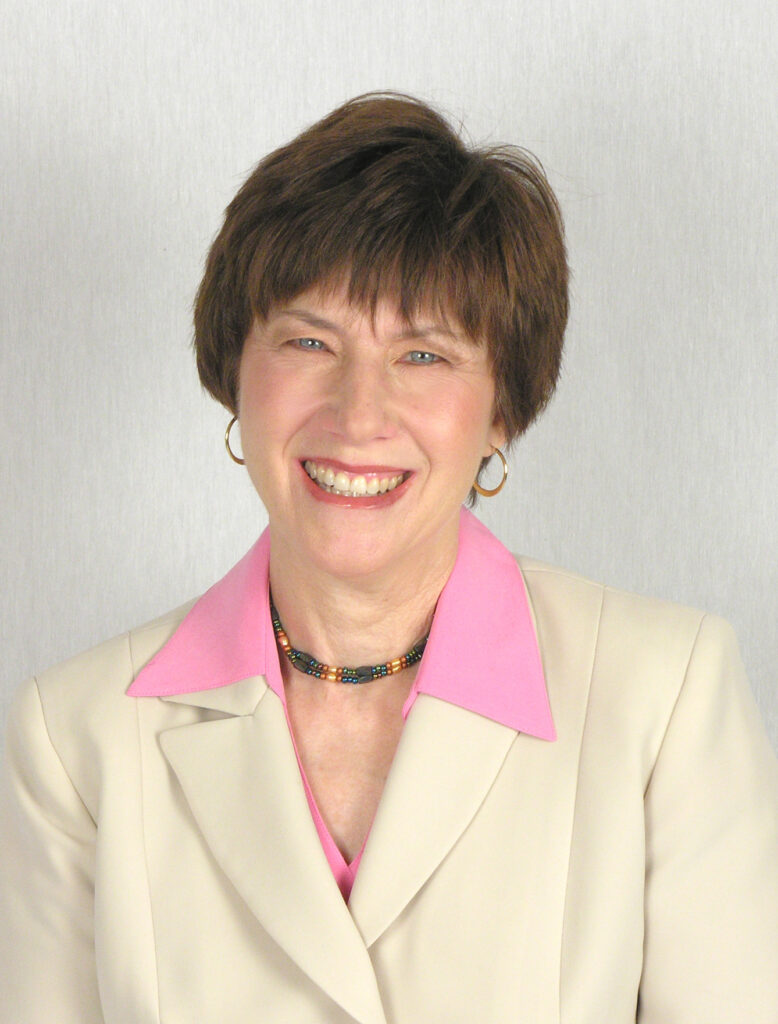Fourth Edition
New and Noteworthy:
Recent Developments in Music and Copyright
By Judith Finell

Unlicensed Tweets?
There has been long-standing pressure from the music industry to require Twitter to pay for and license music on its platform. According to David Israelite (President and CEO of The National Music Publishers’ Association), Twitter “stands alone as the only major social media company that has not licensed the music released, shared and enjoyed by millions of people everyday” (https://www.billboard.com/pro/twitter-elon-musk-license-music/). On August 2, 2021, 22 members of the House of Representatives led by Reps. Kelly Armstrong (R-ND) and Hakeem Jeffries (D-NY) sent a letter to Twitter CEO Jack Dorsey, asking whether the company has serious plans to acknowledge issues around copyright enforcement that the music industry has been addressing for years. However, there was not a publicized reply. In April 2022, Elon Musk initiated an acquisition to purchase Twitter, which was officially completed six months later in October. In November 2022, Musk spoke at the Baron Investment Concert and admitted that Twitter currently gives artists “no means of monetizing” their works on the app. He also stated that Twitter could “start sharing revenue with content creators, which is essential” (https://www.youtube.com/watch?v=P7wUNMyK3Gs), and discussed introducing the option to post longer videos and audio clips to the app. However, he still did not directly address the issue of licensing music. With the very existence of Twitter post-Musk in question, will the company prioritize compensating artists and bringing itself in line with other social media platforms?
Artist Protest Spotify Pay Levels
Songwriters have long objected to the royalty rates paid by streaming platforms, in particular Spotify’s royalty rates. In February 2022, 100 professional musicians gathered outside of SoHo House, West Hollywood, California, protesting that they get paid less than a penny per stream. Now, Congress may be paying attention. On August 9, 2022, Rashida Tlaib (MI-13) worked with the Union of Musicians and Allied Workers to introduce a resolution calling for new streaming royalty regulations (H.Con.Res.102). Within this resolution is a proposition for instituting a guaranteed per-stream royalty, in effect, a “minimum wage” for artists. “This resolution is about sending the message that Congress isn’t going to tolerate artist being taken advantage anymore,” Talib stated (https://tlaib.house.gov/posts/congresswoman-tlaib-introduces-resolution-calling-for-new-streaming-royalty-to-fairly-pay-music-artists). But, in a setback for artists, a UK commission recently concluded that there was no basis to enact legislation mandating greater streaming compensation to songwriters and artists, and that consumers benefit from streaming platform competition (https://www.gov.uk/government/news/music-streaming-report-published) Meantime, in February 2023, Universal Music’s chairman, Lucian Grainge announced opening a study with Tidal Music to “to explore an innovative new economic model for music streaming.” (https://www.digitalmusicnews.com/2023/02/01/tidal-universal-music-group-streaming-model/). The debate over streaming royalty equity is far from over.
Cardi B Wants YouTube Videos Removed After $3.8M Verdict
Rapper Cardi B. won over $2.5 million in damages and $1.3 million in legal fees after suing Youtuber Latasha Kebe and the latter’s company for defamation (Almánzar v. Kebe et al.). As reported in Issue No. 2 of Your Inside Track, Kebe had posted a series of videos that “falsely portrayed the rapper as an adulterous, drug-taking former prostitute with herpes and HPV who publicly performed pornographic acts with beer bottles” (https://www.law360.com/articles/1470760/cardi-b-wants-youtube-videos-removed-after-3-8m-verdict). Judge William Ray also issued an injunction against Kebe ordering her to take down her internet postings. In September, 2022, Kebe appealed the $3.8 million verdict, and requested to stay enforcement of the judgement. However, Judge Ray refused to halt enforcement unless Kebe could post a supersedeas bond covering the entire amount (which is in line with statutory requirements: under Section 917.1 of the California Code of Civil Procedure, an appeal does not stay enforcement of a monetary award). Kebe’s appeal is pending.
Genius v. Google
In 2019, Genius sued Google for allegedly violating Genius’ copyright by using Genius’ lyrics and reposting them at the top of Google’s search results page, thereby diverting traffic from Genius’ website. Genius claims that this has resulted in the loss of at least $50 million. (ML Genius Holdings LLC vs. Google LLC). In August of 2020, Judge Margo Brodie ruled that while Genius’ scraping claim appeared credible, it did not constitute a copyright violation since Genius is not the actual copyright holder of the lyrics; rather, the musicians who wrote them are. This decision was upheld by a three-judge panel in the Second Circuit. Genius is now petitioning for review by the U.S. Supreme Court. (https://www.theverge.com/2022/3/11/22973282/google-wins-court-battle-genius-song-lyrics-copyright).
Kesha and Dr. Luke’s Defamation Case Update
The eight-year legal feud between music producer Dr. Luke and singer Kesha may finally be addressed with a trial date set for July, 26, 2023. The dispute began when Dr. Luke sued Kesha in New York for defamation, and Kesha sued Dr. Luke in Los Angeles for sexual, physical, and emotional abuse on the same day. The trial was originally set for February, 2023 but postponed due to pre-trial appeals. In one appeal, Kesha is attempting to reverse the ruling that Dr. Luke is a private figure. If Dr. Luke is found to be a private figure, he must only prove that Kesha acted with negligence, not actual malice when she claimed he abused her. Kesha’s other appeal is attempting to overturn a ruling that if Kesha wins her lawsuit, she cannot file a counterclaim compelling Dr. Luke to pay her legal fees. Kesha’s earlier attempts to be released from her label deal with Sony based on allegations of Dr. Luke sexual abuse failed: the court concluded that no grounds were present to release her from her contract with the label (https://slate.com/human-interest/2016/04/keshas-case-against-sony-and-dr-luke-got-quashed-by-a-new-york-judge.html).
Madonna Challenges NFT
In May, 2022, Madonna auctioned off 3 NFT’s she created with digital artist Beeple, bringing in a total of over $600,000 for various charities. However, Madonna is now part of a class action lawsuit filed on December 8, 2022 against several celebrities including Justin Bieber, Snoop Dogg, and Serena Williams for endorsing Yuga Labs, the creator of the NFT collection “Bored Ape Yacht Club.” The suit accuses the defendants of luring in “unsuspecting investors so Yuga insiders could sell the unregistered Yuga securities in violation of the Securities Act” (https://finance.yahoo.com/news/madonna-snoop-dogg-among-celebs-204601287.html). A cautionary tale for NFT creators: check to be sure you have all content rights cleared and security regulations complied with!
Major Labels, Publishers Reach Deal at CRB to Increase Songwriter Mechanical Royalties
A new motion from the RIAA, NMPA and other trade groups is expected to increase the rate to 12 cents for every track sold.
On December 16, 2022, the Copyright Royalty Board accepted a motion known as “Settlement 2,” drafted by a group representing music publishers, songwriters, and record labels in May, 2022 to raise the U.S. mechanical royalty rate by 32%, from 9.1 cents to 12 cents per track (https://www.musicbusinessworldwide.com/files/2022/05/Joint-Motion-to-Adopt-New-Settlement-of-Statutory-Royalty-Rates-and-Terms-for-Subpart-B-Configurations-1.pdf). The last time that the U.S. mechanical royalty rate increased was over 16 years ago in 2006, when it rose from 8.5 cents to 9.1 cents, per the 1997 Mechanical Rate Adjustment Proceeding. The new 12 cent rate began taking effect on January 1, 2023 as part of Phonorecords IV. Conversely, “Settlement 1” (which was drafted in March of 2022 by the same 5 parties as the aforementioned “Settlement 2”) proposed not increasing the mechanical royalty rate from 9.1 cents to 12 cents. However, this motion was rejected by the Copyright Royalty Board judges. CRB judge Susan Barnett wrote on the issue, “Sixteen years at a static rate [9.1 cents] is unreasonable . . . if for no other reason than the continuous erosion of the value of the dollar by persistent inflation that recently has increased significantly” (https://www.musicbusinessworldwide.com/files/2022/04/CRBsrejectionMarch2022.pdf).

Judith Finell is a musicologist and the president of Judith Finell MusicServices Inc., a music consulting firm in New York and Los Angeles, founded 25 years ago in New York. Since then, she has served as consultant and expert witness involving music copyright infringement, advised on artist career and project development, and a wide variety of music industry topics. Recently, Ms. Finell was honored to be the 2018 commencement speaker at UCLA’s Herb Albert School of Music. She was also interviewed by NBC/Universal for a 2018 documentary entitled “The Universality of Music,” in which she discussed the ways in which she sees music as being an international language that can bridge cultural barriers that spoken language does not.
Judith Finell was the testifying expert for the Marvin Gaye family in the milestone “Blurred Lines” case in Federal Court. She has testified in many other notable copyright infringement trials over the past 20 years. She and her team of musicologists regularly advise HBO, Lionsgate, Grey Advertising, CBS, Warner, Disney, and Sony Pictures on musical works for their commercials, films, and television series. Ms. Finell also frequently advises attorneys, advertising agencies, entertainment and recording companies, publishing firms, and musicians, addressing copyright issues, including those arising from digital sampling, electronic technology and Internet musical usage.
Ms. Finell was invited to teach forensic musicology at UCLA in 2018, where she continues to teach the only such course in the country. She holds an M.A. degree in musicology from the University of California at Berkeley and a B.A. from UCLA in piano performance. She has written numerous articles and a book in the area of contemporary music and copyright infringement and has appeared in trials on Court TV and before the American Intellectual Property Law Association. She is a trustee of the Copyright Society of the U.S.A., and has appeared as a guest lecturer at the law schools of Harvard University, UCLA, Stanford, Columbia, Vanderbilt, George Washington, NYU, and Fordham, as well as the Beverly Hills Bar Assn., LA Copyright Society, and the Association of Independent Music Publishers. She may be reached by email at [email protected].
© 2023 Your Inside Track™ LLC
Your Inside Track™ reports on developments in the field of music and copyright, but it does not provide legal advice or opinions. Every case discussed depends on its particular facts and circumstances. Readers should always consult legal counsel and forensic experts as to any issue or matter of concern to them and not rely on the contents of this newsletter.
